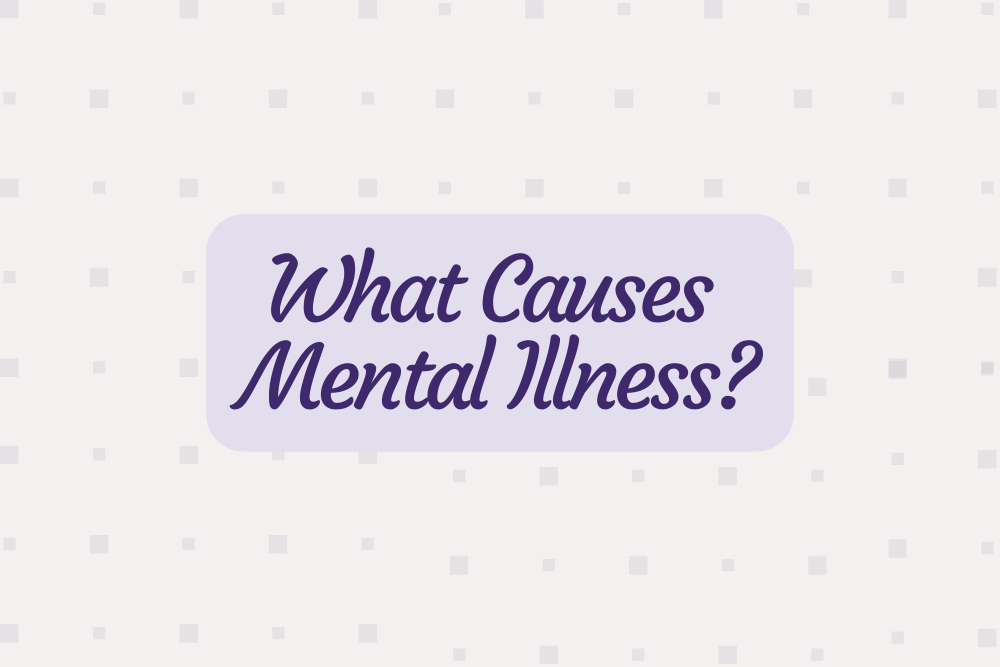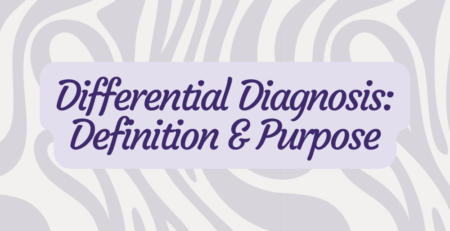Causes of Mental Illness
If you or someone you know was recently diagnosed with a mental illness, you may have questions about the diagnosis. You may wonder what treatment will look like or how to cope with your symptoms. What will the future look like as you manage this disorder? One of the most common questions people ask when navigating a mental illness is: What caused these symptoms to develop? There is rarely a single reason for this diagnosis. Rather, it is a result of a combination of risk factors.
What are Risk Factors?
Because mental health disorders can be caused by multiple events or circumstances, providers steer away from identifying a specific “cause” related to the diagnosis. Instead, they refer to risk factors that increase a person’s likelihood of developing a mental illness. A risk factor is simply an aspect of a person’s life that places them at a greater risk for a diagnosis. The presence of one or more of these is not always an indication of a future disorder, but it does make this possibility more likely.
Mental Health Risk Factors
Generally, the risk factors associated with mental health disorders fall into three main categories: genetics, environment, and pre-existing conditions.
Genetic Factors
Some people may have a genetic predisposition to mental illness. If you have a family member with anxiety, depression, a substance use disorder, or another condition, you are more likely to experience similar struggles. Researchers frequently debate whether these diagnoses are a result of biological factors or not, but familial patterns point to this being the case. Some genetic markers have been also found that indicate a hereditary component to mental health.
Environment
Life experiences are often the most noted factors when someone receives a mental health diagnosis. Negative or traumatic events are difficult to cope with, resulting in one of these disorders. Some of the most common environmental factors leading to a diagnosis include:
- Witnessing or being a victim of violence
- Abuse
- Persistent stress
- Traumatic experiences (natural disasters, sudden life changes)
- Loss of a loved one
- Lack of emotional support (especially in children)
- Isolation
Sometimes it’s difficult for people to recognize when they have experienced a traumatic event in life. Trauma is defined as anything that alters your sense of safety for a period of time. What’s considered traumatic for you might not be for another person, but that’s okay and normal. Your experience is valid, and you are allowed to be affected by these events.
Pre-Existing Conditions and Health Risks
You may have a higher likelihood of a mental illness if you have certain medical conditions or health risks. Traumatic brain injuries alter a person’s ability to process information and emotions. Chemical imbalances in the brain can also contribute to your risk. Those who are managing a chronic or serious medical condition, such as cancer, autoimmune disorders, or chronic pain, are also more likely to suffer mental effects as a result.
Managing a Mental Health Diagnosis
After receiving a diagnosis, the first step is to connect with a reputable mental health professional. At Serene Behavioral Health, our clinicians have years of experience in helping clients manage their diagnoses. We offer four levels of care: residential, day, intensive outpatient, and monitored outpatient programs. Our team works with those who have mood disorders, anxiety, trauma, and personality disorders. We can work with you to help determine potential causes, or risk factors, of your diagnosis, so you can better understand how to manage your symptoms. At Serene Behavioral Health, you’ll develop healthy coping skills to improve your overall well-being. If you are in need of higher levels of mental health support, contact our team today to learn more about our programs.
















